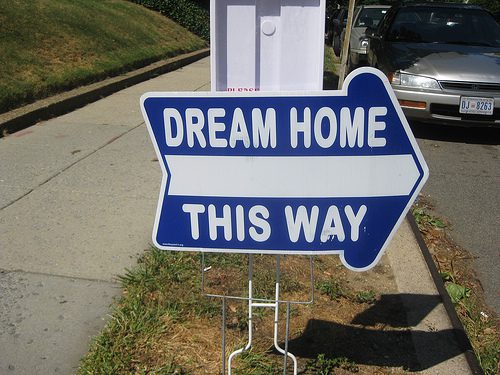Politicians have told us for decades that homeownership is the American Dream. They do this because they get lots of contributions from interest groups that have a stake in pushing homeownership: builders, real estate agents, mortgage bankers, and many others who stand to get a share of the spoils. But letting politicians determine our dreams is never good policy.
While homeownership may often provide a good path for secure housing and a route to accumulate wealth for moderate- and middle-income families, it's often not the best option. The reason is very simple: There are large transactions costs associated with homeownership. A person planning to buy a home can expect to pay fees on a mortgage, title insurance, fees for an inspection, an appraisal, a survey, and in many states a transfer tax. These fees can easily come to 3-4 percent of the purchase price of a home.
Homeowners face a similar story on the sell side. The most important cost of selling a home is usually the Realtors’ fee, which is typically 6 percent of the sale price. In total the average round trip cost of buying and selling a house is likely to be in the neighborhood of 10 percent of the purchase price.
This is a lot of money to throw in the garbage. For a $250,000 house this would imply transactions costs of $25,000. That would be more than two years of rent for a place that rented at $1,000 a month.
If someone can expect to stay in a home for a long period of time so that these transactions cost can be averaged over 10 or 20 years, then they end up not being a very big deal. However if it ends up being the case that a homebuyer must resell the home after just two to three years then the transactions costs could easily double the cost of housing over this period.
If a potential homeowner is not in a secure family and employment situation where they can expect to be able to stay in the same place for at least five years, then they would likely be better off renting. While there are many reasons that renting is often a less desirable housing situation than owning, these are best addressed by policies that make renting more secure, as opposed to policies that encourage people to throw away money on transactions costs to become a homeowner.
During the bubble years, from 2002 through 2007, short periods of homeownership made even less sense than normal. People who bought houses at bubble-inflated prices were virtually guaranteeing themselves large losses. Rather than being a ticket to the middle class, homeownership in a bubble was a fast path to poverty.
The basic story here is straightforward: if a family cannot expect to stay in the same place for a substantial period of time, then it is almost certainly better to rent than own. The only people who will accumulate wealth from short periods of homeownership will be the realtors, the mortgage brokers and other intermediaries.
My next piece will explain why homeownership is not the secure investment it is cracked up to be. In the meantime, just remember, you can’t eat the American dream.
Photo by futureatlas.com, (CC BY)






Comments